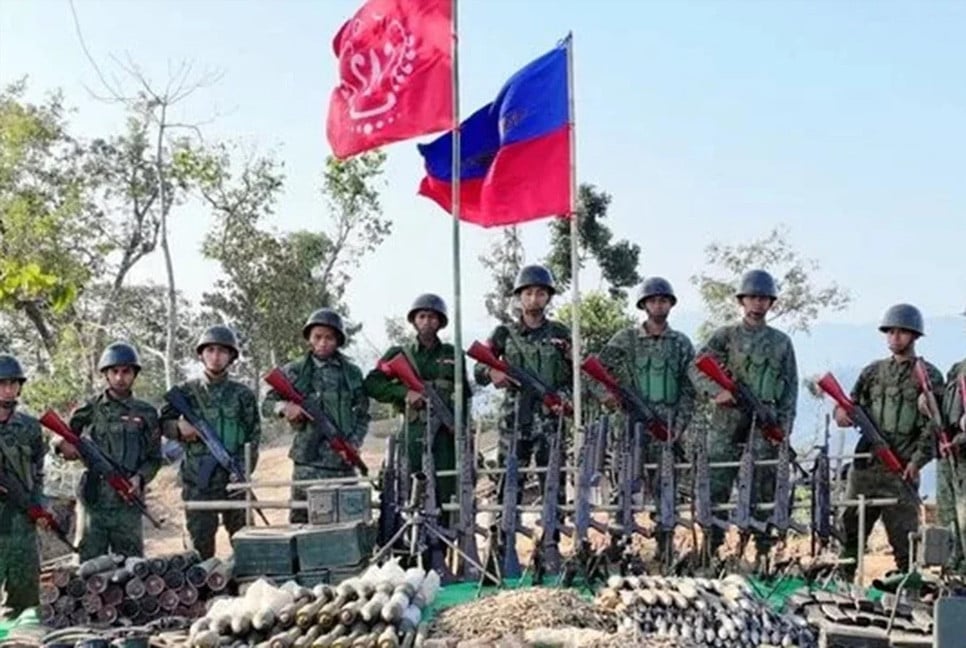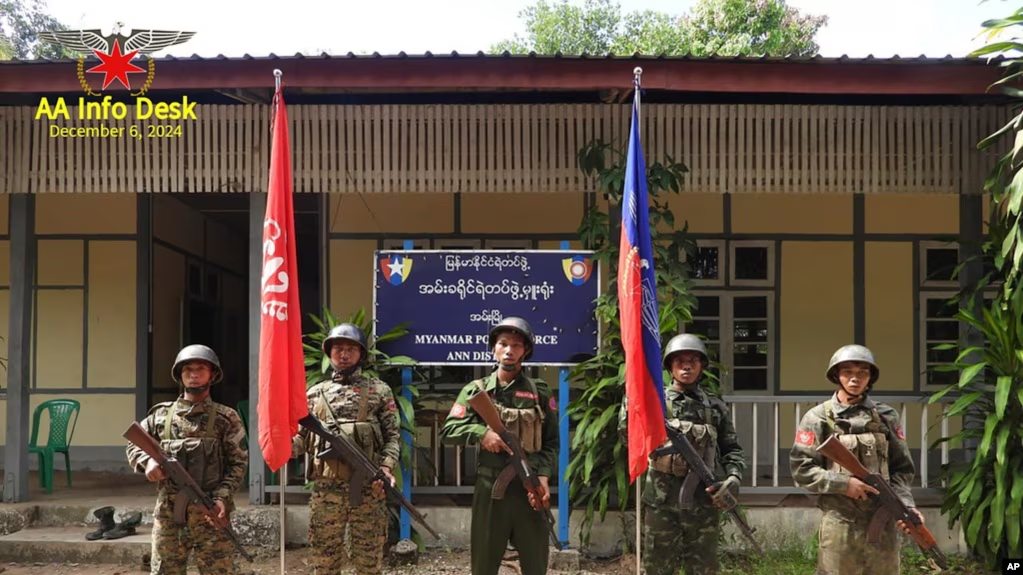Myanmar’s Arakan Army (AA), an ethnic rebel group, announced on Friday that it has seized the military’s western regional command in Rakhine state, marking a significant setback for the junta.

In a statement shared via its Telegram channel, the AA stated it had “completely captured” the western command in Ann following weeks of intense fighting. If confirmed, this would be the second regional military command to fall to ethnic rebels within five months—a significant blow to the military’s control.
The Myanmar military, known as the Tatmadaw, operates 14 regional commands across the country, many of which are currently engaged in battles with entrenched ethnic rebel groups or the newer “People’s Defense Forces” (PDFs) that emerged in response to the military’s 2021 coup.
Fighting has escalated in Rakhine state since November last year, when the AA launched attacks on security forces, breaking a ceasefire that had largely held since the coup. The Arakan Army has since gained control of large swathes of territory in the strategically important state, disrupting commerce and isolating the state capital, Sittwe.

Photos posted by the AA on its Telegram channel showed a man claimed to be the Ann deputy regional commander in the custody of its fighters. However, this information has not been independently verified, and AFP has sought comment from the AA’s spokesperson.
Due to patchy internet and phone services, AFP was also unable to contact residents in the Ann area for confirmation.
Historically, Myanmar’s military had never lost a regional command until August of this year, when the Myanmar National Democratic Alliance Army captured the northeastern command in Lashio, Shan state.
Myanmar’s borderlands have long been hotspots of conflict, with numerous ethnic armed groups fighting the military for greater autonomy and control over lucrative natural resources since the country’s independence from Britain in 1948.
The ongoing conflict in Rakhine state has compounded economic hardship. Last month, the United Nations warned of an impending famine in the region, as the clashes disrupt commerce and agricultural activities.
“Rakhine’s economy has stopped functioning,” the UN Development Program reported, forecasting “famine conditions by mid-2025” unless the worsening food insecurity is addressed.



